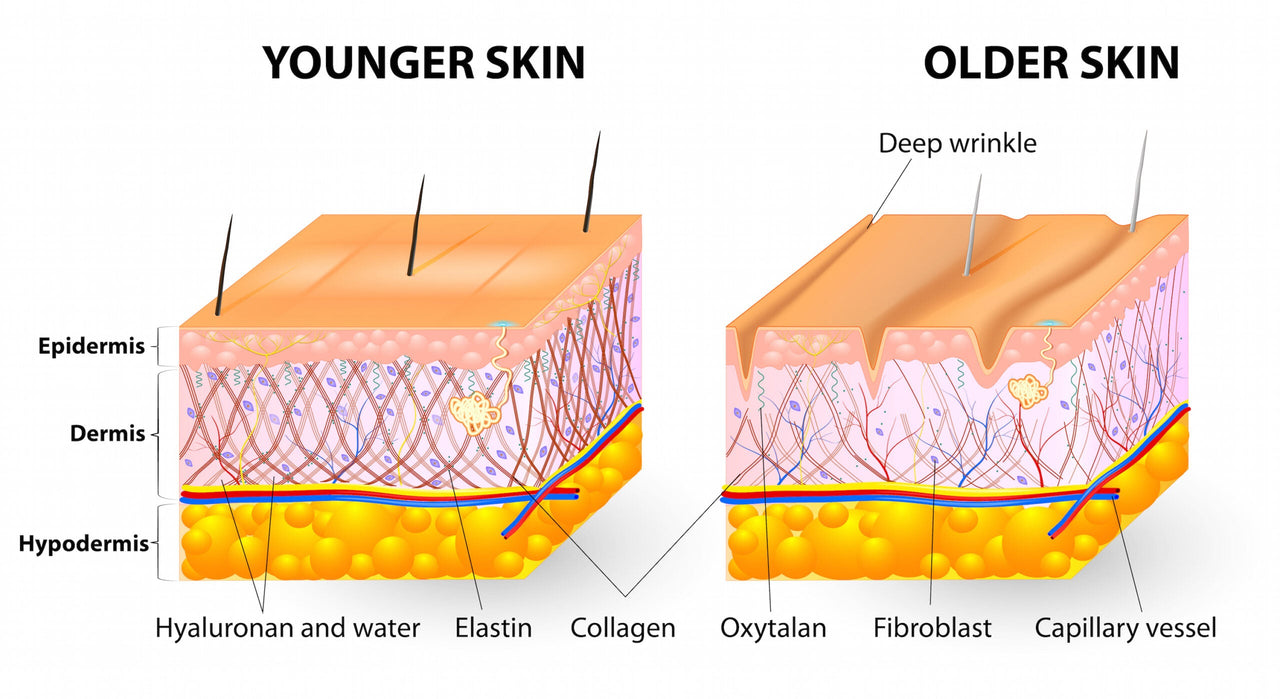Collagen is one of the most talked-about ingredients in beauty—praised for its ability to plump, firm, and rejuvenate the skin. From creams to supplements, it’s everywhere. But for Muslim consumers, one critical question often arises:
👉 Is collagen halal or haram?
The answer depends on where it comes from, how it’s processed, and whether it meets halal compliance standards. Let’s break it down clearly.
What Is Collagen?
Collagen is the most abundant protein in the human body, responsible for skin elasticity, joint flexibility, and tissue strength.
In skincare, collagen can appear in two main ways:
-
Topical collagen: Used in creams and serums to hydrate and smooth.
-
Ingestible collagen: Found in powders, capsules, or drinks for inside-out benefits.
Sources of Collagen
Collagen isn’t always the same. Its halal status depends on its origin:
-
Bovine (cow) collagen
-
Common in skincare and supplements.
-
Halal only if sourced from animals slaughtered according to Islamic law.
-
Otherwise, considered haram.
-
-
Porcine (pig) collagen
-
Widely used due to availability and cost.
-
Always haram, as pork derivatives are strictly prohibited.
-
-
Marine collagen (fish-derived)
-
Increasingly popular in skincare and supplements.
-
Halal-friendly if fish species are permissible and processing avoids contamination.
-
-
Vegan / plant-based collagen alternatives
-
Technically, plants don’t produce collagen. Instead, biotech can create collagen-like peptides from yeast, algae, or plants.
-
100% halal-friendly when produced without animal inputs.
-
Halal Certification Matters
Even if collagen comes from a permissible source, halal compliance depends on:
-
Slaughter method (for bovine collagen).
-
Processing environment (no cross-contamination with haram ingredients).
-
Certification by recognized halal bodies like JAKIM, IFANCA, or MUI.
At Purelab Care, we only use non-animal or halal-verified collagen actives, with strict third-party testing and halal certification to ensure integrity.
Does Topical Collagen Really Work?
While topical collagen hydrates and improves skin texture, it doesn’t penetrate deep enough to replace your body’s collagen.
That’s why modern skincare increasingly uses collagen peptides, amino acids, and boosters that stimulate your skin to produce its own collagen—a safer, halal-friendly, and more effective approach.
✅ Collagen & Halal: Frequently Asked Questions
1. Is marine collagen halal?
Yes—marine collagen from halal-approved fish species is halal, provided it’s processed without contamination.
2. Is vegan collagen real collagen?
Not exactly. Plants don’t make collagen, but biotech can create collagen-like peptides from plants, yeast, or algae. These are halal-friendly and often used in modern formulations.
3. Can topical collagen replace lost collagen in the skin?
No. Topical collagen mainly hydrates. To truly boost collagen, look for peptides, niacinamide, and biotech actives that encourage your skin to produce more naturally.
4. Why is porcine (pig-derived) collagen haram?
All pork-derived ingredients are strictly prohibited in Islam, regardless of processing.
5. How do I know if collagen in a product is halal?
Check for halal certification and clear labeling. Brands like Purelab Care verify every raw material with trusted third-party halal authorities.
The Bottom Line
-
Halal: Marine collagen, halal-certified bovine collagen, and biotech/plant-based alternatives.
-
Haram: Pig-derived collagen and non-certified bovine sources.
-
Best option for skincare: Biotech peptides and halal-certified actives that support natural collagen production.
At Purelab Care, we believe true beauty comes without compromise. Every ingredient, including collagen, is chosen with scientific precision and halal integrity—ensuring performance you can trust.



